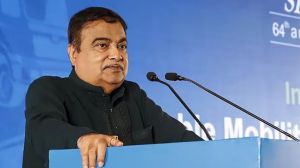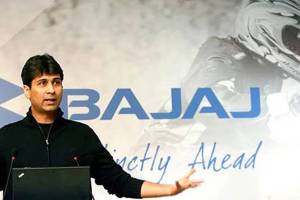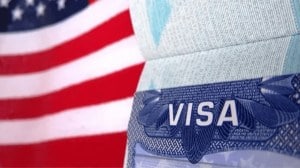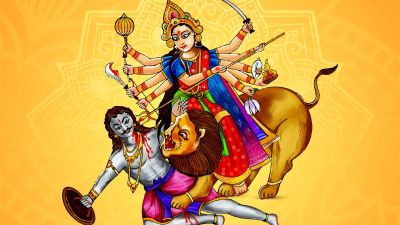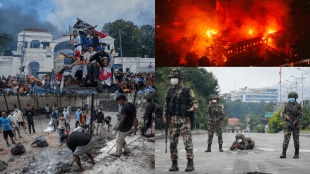While personalised calls and messages by political leaders, including the Prime Minister, and their digital avatars on social media are common in the run-up to the polls, the full utilisation of AI still appears to be some distance away.
For instance, AI-driven conversations, where candidates can verbally respond to questions over calls instead of typing out answers, have yet to occur on a large scale. This is primarily due to the limitations of the bots used for this purpose, as they struggle to comprehend local dialects and provide real-time translations.
“AI will have its time in near future but will not be a differentiator in these elections and the impact on voters’ perception will be limited,” said Diggaj Mogra, director at Jarvis Technology and Strategy Consulting. “No national party is using it at scale, it’s just being used mostly for indistinct outreach by independent candidates and smaller parties,” Mogra said.
The fear of missing out (FOMO), however, is driving other AI use cases like voice cloning and face swapping. Among the most noticeable ones, are a deepfake video of late M Karunanidhi, DMK supremo and former chief minister of Tamil Nadu, which was created by Muonium, an AI media tech startup. Another such instance was of an AI video released by the Congress party which used Modi’s voice and face clones, to recreate a Hindi music album named, Chor (thief).
On its part, the BJP used the voice of legendary singer Mahendra Kapoor in its campaign over social media. The party is also leveraging Bhashini, to translate Modi’s speeches into regional languages. It has recently attempted real-time translation of the Prime Minister’s speech in Hindi to Tamil using Bhashini.
“At Kashi Tamil Sangamam, Modi ji tried (real-time translation) technology with 200 people. Everybody needs a ear piece to hear translation in real time. It comes with a lag of 4-5 seconds. For 200 people it’s fine, but how can we get to a larger scale,” said K Annamalai, BJP chief of Tamil Nadu, in a recent interview to ANI.
“On social media, the translated speech of the Prime Minister is coming with a two-hour delay. I am predicting that in two years time, there could be an app which will help people listen to Modi’s speeches in their own dialects real-time,” Annamalai said.
Sagar Vishnoi, a political consultant said, “personalisation of elections is the focus of political parties and using AI is a cost effective method for that”.
Vishnoi was part of the campaign that created BJP’s Manoj Tiwari AI-generated deepfake video in Haryanvi dialect for Delhi Assembly Elections in 2020. According to Vishnoi, parties are using AI for analysing reactions of people, and getting feedback from the voters on certain issues using AI interactive voice response (IVR).
“It is understood that parties are Budget conscious when it comes to using AI. Therefore, most are hiring in-house creators who are using free tools from GitHub or app stores to do face swapping or voice cloning,” Vishnoi added.
According to industry estimates, the spending on AI for campaigns by political parties is going to be less than 1% of the total election spend. Collectively, parties are not expected to spend beyond Rs 100 crore on AI related tools in this elections.
For AI startups such as Ajmer-based The Indian Deepfaker and Chennai-based Muonium AI, this time the election is about meeting the deadline for AI projects of parties.
“We are working on eight projects related to elections at the moment. Political consultants reaching out to us are demanding AI-generated videos, songs, personalised messaging, conversational AI, real-time translation etc,” said Divyendra Singh Jadoun, founder of The Indian Deepfaker.
Jadoun, who has a team of nine people, said the company has seen a six times growth year-on-year in the last three to four months due to elections projects. According to Jadoun, an average project which includes 400,000 personalised videos, costs Rs 47 lakh. “Demand for AI tools has risen. If earlier we were doing 2,000-10,000 videos per project, it has now gone up to 400,000-10,00,000 videos,” Jadoun added.
Senthil Nayagam, founder of Muonium said, “AI quality has improved in videos and audios. We have access to a lot of creative talent in terms of creating movie-quality content, meme content, auto-tuning, generating songs from speeches, etc, based on the demand from parties”.
According to Nayagam, many parties through personalised and hyper personalised messaging or calling are shifting from push to a pull strategy to get voters.
While many companies are conscious of putting disclaimers for AI generated content, using free tools, many parties are also pushing such content such as deepfakes without any disclaimers, which could emerge as a big issue in the elections, experts cautioned.




